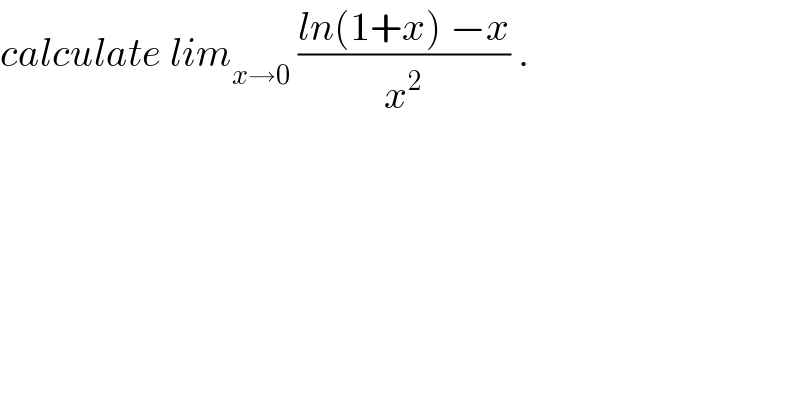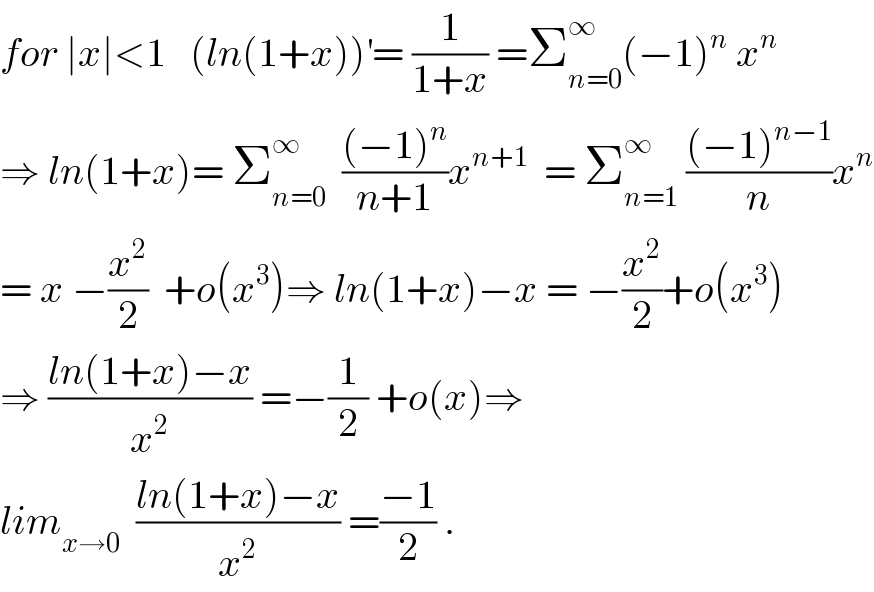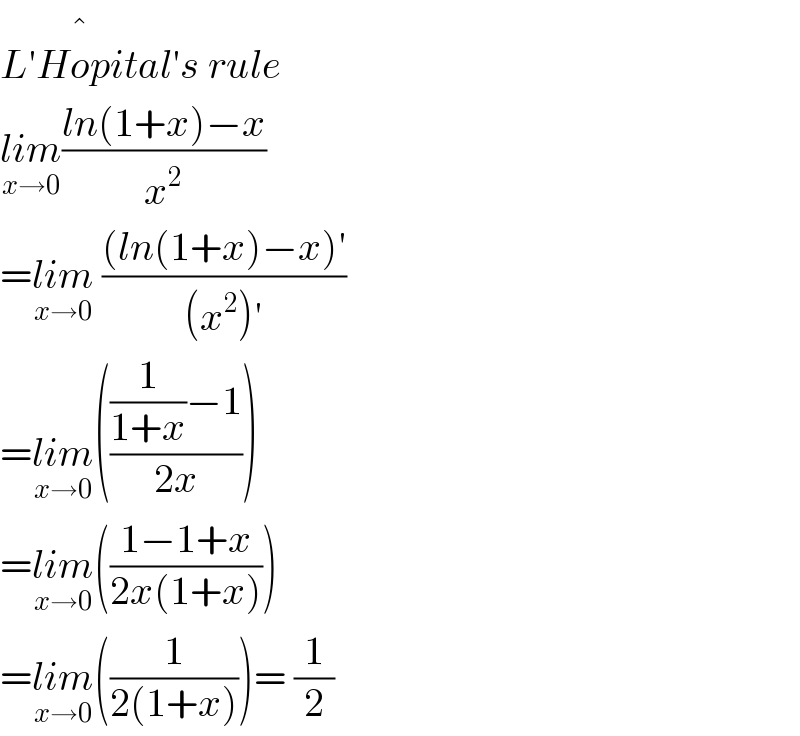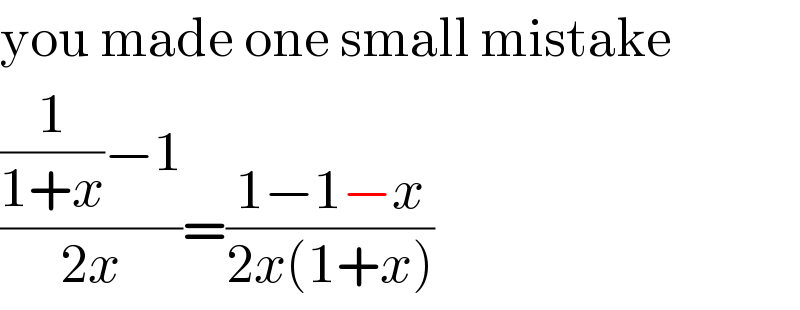
Question and Answers Forum
Question Number 32991 by abdo imad last updated on 09/Apr/18

Commented by prof Abdo imad last updated on 09/Apr/18

Answered by kyle_TW last updated on 09/Apr/18

Commented by MJS last updated on 09/Apr/18

| ||
Question and Answers Forum | ||
Question Number 32991 by abdo imad last updated on 09/Apr/18 | ||
 | ||
Commented by prof Abdo imad last updated on 09/Apr/18 | ||
 | ||
Answered by kyle_TW last updated on 09/Apr/18 | ||
 | ||
| ||
Commented by MJS last updated on 09/Apr/18 | ||
 | ||